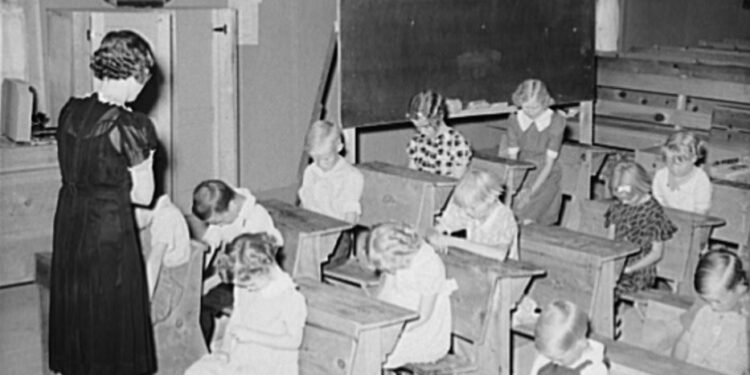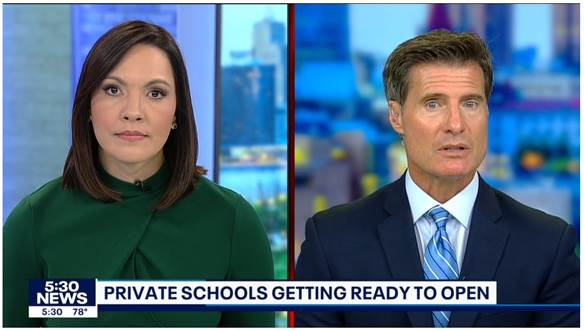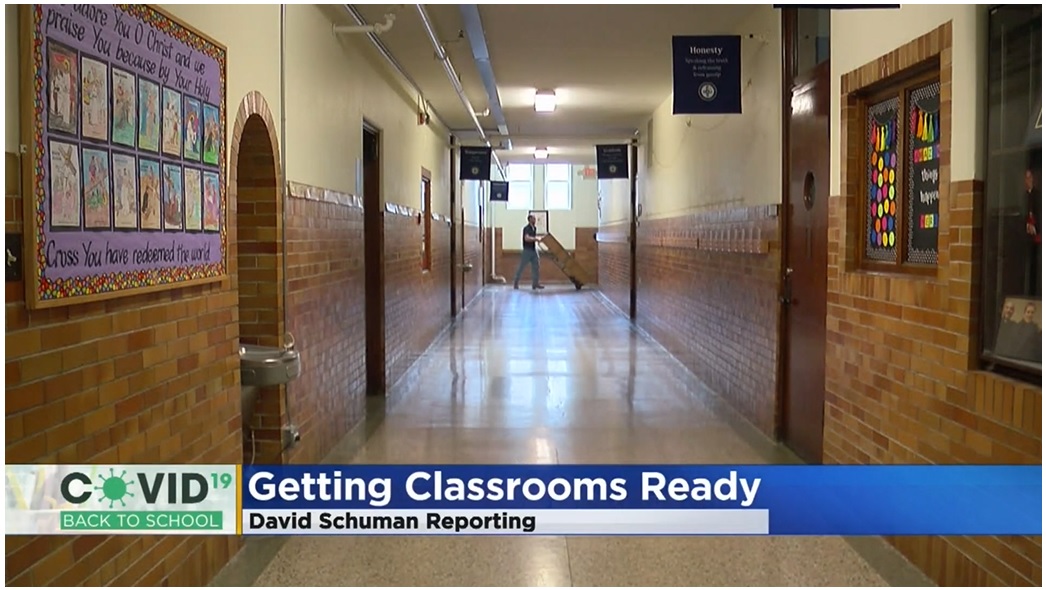As a grade school student, one of my favorite field trips was spending a day attending the one-room school at a local historical site. My friends and I would pack our noontime meal in lunch buckets, dress in aprons and bonnets, and participate in a spelling bee at the close of the day.
But our lessons in the classroom covered more than just the three Rs. Often, the teacher would explain the types of trouble that students of old would get into, and the consequences they would receive for such behavior. To demonstrate, my friend Teresa got her braid “dipped” in the inkwell by a “naughty” boy, who was then sent to the corner to wear the dunce cap, while my friend Amy once had to play the antsy girl who had to stand at the blackboard, nose to a chalk circle, to teach her to remain still.
Such behaviors seem miniscule by today’s standards, but they demonstrate the expectation of moral instruction and discipline in the classrooms of yore.
Sadly, such moral classroom instruction is no more, and parents are noticing. A recent poll of homeschoolers released by The Washington Post found that 34 percent of homeschooling parents were teaching their child at home in order to “provide religious instruction” and 68 percent were doing so in order to “provide moral instruction.”
Some may immediately reply to such news by saying that moral or religious instruction doesn’t belong in the public schools—they are supposed to be secular institutions, governed by secular principles, right?
But at least one of our nation’s Founders didn’t look at it that way. In fact, Dr. Benjamin Rush, a signatory to the Declaration of Independence, declared religious and moral instruction as key components of the nation’s education system, critical to the health of the country. Delineating the following principles for education, he encouraged Americans to lay “the foundations for nurseries of wise and good men.”
Patriotism as a Form of Moral Instruction
Love of country is often viewed as a bad thing in today’s culture. Patriotism is divisive, many say—we are seeking to raise global citizens, after all.
Rush shunned such an idea, encouraging Americans to educate the nation’s youth within our own borders, for “the principle of patriotism stands in need of the reinforcement of prejudice.” To foster this connection to the nation and its laws, Rush encouraged building camaraderie among young students through community events such as sport and work, for building such connections “add greatly to the obligations of mutual benevolence.”
In cultivating patriotism and community in students, we subsequently teach the morality of kindness—a prized but often absent virtue in today’s culture.
No Gender Gap in Moral Instruction
The Founding Fathers weren’t the feminine oppressors many make them out to be, a fact Rush demonstrated in his advocacy for women to learn the same “principles of liberty and government”—those derived from moral instruction—that men learned. Rush did so because he recognized the influence women have on a society.
“The opinions and conduct of men are often regulated by the women,” he wrote, “and their approbation is frequently the principal reward of the hero’s dangers, and the patriot’s toils.” He further noted that women are the ones who form “the first impressions upon the minds of children”; thus, instructing them in moral principles ensured that such instruction would be passed along to subsequent generations.
Religious Instruction Is the Seed of Liberty
Local and national politics are filled with tirades and treatises on the failings of public education, with many clueless about how to turn around this perpetual disaster.
Rush offered a simple answer to this problem, noting that good education needs a good foundation, and “the only foundation for a useful education in a republic is to be laid in Religion.”
Religion is the only good soil in which virtue can grow, Rush continued, and when virtue is cultivated, it brings forth liberty, “the object and life of all republican governments.”
That liberty is vital to our nation’s government is seen multiple times in the Constitution’s First Amendment. With liberty, our citizens have a free press through which they can learn various ideas and theories; with liberty, citizens can learn about the right way to petition the government; with liberty, citizens can gather to exchange ideas, to hear religious teaching, and to listen to the speech of others and express their own thoughts.
In short, religious instruction sets off the chain reaction leading to a free country where children can learn with free and open minds. Kiss that religious instruction goodbye, and you can expect the dominos to fall in a long line toward totalitarianism.
The Best Form of Religious Instruction
If religious instruction is so important, what religious beliefs should be advanced in the United States’ schools?
Here again Rush had an answer. “I had rather see the opinions of Confucius or Mahomed inculcated upon our youth, than see them grow up wholly devoid of a system of religious principles,” he wrote.
But if given a choice, Rush preferred that schools teach Christianity because of the character it produces in its adherents—including “humility, self-denial, and brotherly kindness”—and the benefits it brings to a republican form of government. “All its doctrines and precepts are calculated to promote the happiness of society, and the safety and well being of civil government,” he wrote.
The Recipe for a Happy Nation
Rush concluded his thoughts on education in the fledgling United States by writing:
“From the combined and reciprocal influence of religion, liberty and learning upon the morals, manners and knowledge of individuals, of these, upon government, and of government, upon individuals, it is impossible to measure the degrees of happiness and perfection to which mankind may be raised.”
In other words, the recipe for a happy nation comes by combining religion, morality, and education.
Uttered today, such thoughts would meet with accusations of failing to separate church and state. But given that Rush was one of the founding members of our nation, he likely understood that our government would cease to function properly without laying the foundation of morality and religion in the hearts of young students.
Perhaps it’s time we try his suggestions once again.
—
This article is republished with permission from The Epoch Times.
Image Credit: Library of Congress













![[downloaded during free trial]](https://oakmn.org/wp-content/uploads/2025/11/iStock-1430368205-120x86.jpg)